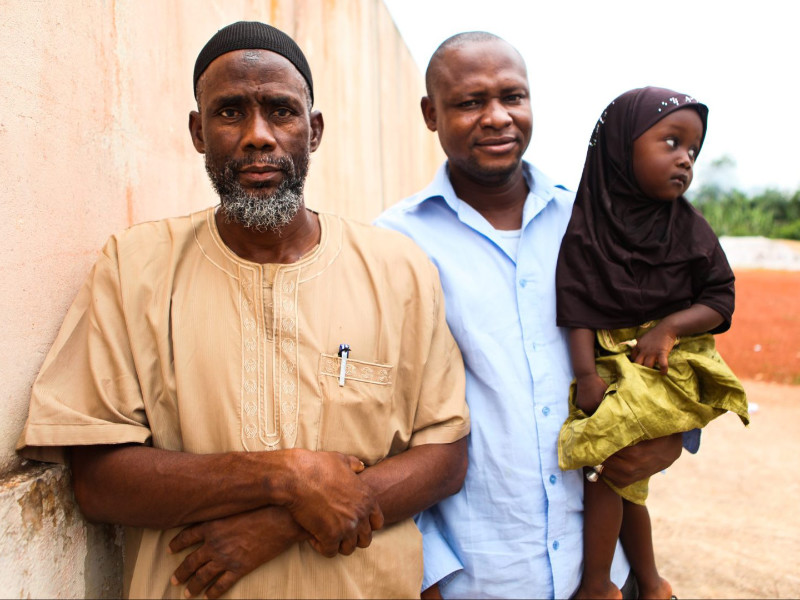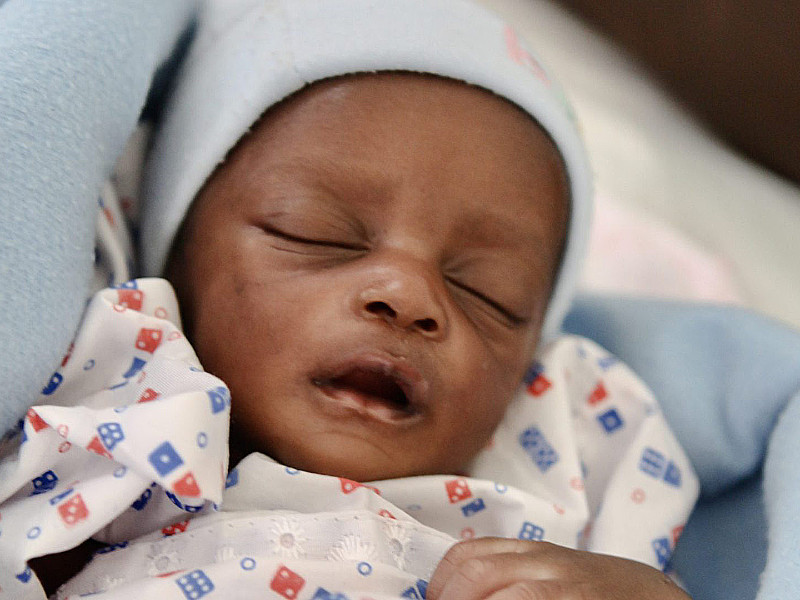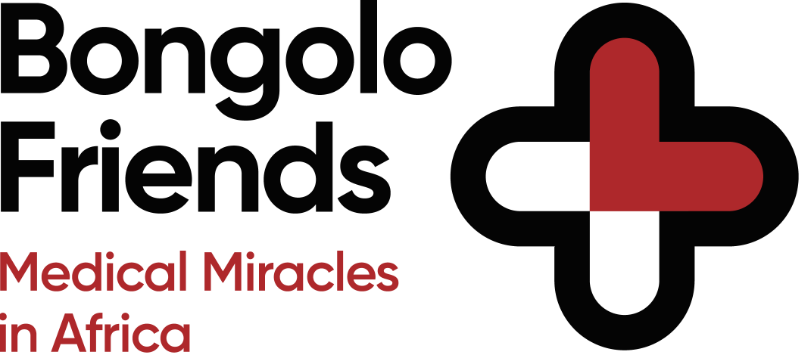Health for Africa
Africa’s Healthcare Dilemma
 The story of healthcare throughout Africa consistently reveals chapters of hope alongside heartache. The challenges are well known: too few trained doctors and nurses, and even fewer medical specialists.
The story of healthcare throughout Africa consistently reveals chapters of hope alongside heartache. The challenges are well known: too few trained doctors and nurses, and even fewer medical specialists.
Add to the staffing problems the realities of inadequate supplies and equipment, the inability of patients to pay for even basic medical services, and a growing disparity of medical services between rural and urban populations.
It’s been estimated that several decades ago, Christian hospitals were providing more than half of the healthcare in sub-Saharan Africa. However, a 2012 study published by the NIH reported the percentage has dropped to below 10 percent. Why the serious decline?
Throughout the 20th century, Africa’s churches have matured and assumed leadership of a staggering number of Bible schools, elementary schools, health clinics and hospitals. It’s been a convergence of an evolving missions landscape and economic pressures.
Foreign missions organizations left the continent while large numbers of doctors and nurses retired. Foreign subsidies dried up for vital medicines, medical equipment, infrastructure investment, and salaries. Thousands of renowned Christian clinics and hospitals closed their doors. Some were taken over or replaced by governments or private institutions, but the majority that were serving rural populations were lost.
But, Bongolo Hospital Remains
 One of the exceptions to decline of Christian hospitals in Africa was Bongolo Hospital in the West African country of Gabon. In the 1940s, the Christian and Missionary Alliance (C&MA) sent nurses from the United States to open a small dispensary at the Bongolo mission station, near the capital city of Lebamba in southwest Gabon.
One of the exceptions to decline of Christian hospitals in Africa was Bongolo Hospital in the West African country of Gabon. In the 1940s, the Christian and Missionary Alliance (C&MA) sent nurses from the United States to open a small dispensary at the Bongolo mission station, near the capital city of Lebamba in southwest Gabon.
Although Gabon won its independence from France in 1960, the nation was unprepared to operate the provincial hospitals and public health services that the French had financed and staffed for a century. As a result, rural medical and public health services collapsed.
At that time, the C&MA was predominantly a rural denomination. Its pastors witnessed and experienced the suffering that followed, even losing some of their own children. They appealed to the U.S. C&MA to come to their aid.
In 1975, the C&MA raised $50,000 and sent a team of one doctor and five nurses to Bongolo. The team’s mission was to establish a facility that could provide medical services to people living in southwestern Gabon.
Dr. David Thompson, a founding member of Bongolo Friends, was the lone doctor on the team, and over the next 35 years, he and his wife, Becky, helped to grow Bongolo Hospital into one of Gabon’s premiere medical centers and teaching hospitals.
 Healthcare in Gabon is increasingly becoming a precious resource, especially for the rural poor. Recent economic downturns have forced the Gabonese government to reduce healthcare subsidies and insurance reimbursements for many hospitals, including Bongolo Hospital.
Healthcare in Gabon is increasingly becoming a precious resource, especially for the rural poor. Recent economic downturns have forced the Gabonese government to reduce healthcare subsidies and insurance reimbursements for many hospitals, including Bongolo Hospital.
Bongolo Hospital is among the largest of the rural hospitals in Gabon impacted by the nation’s current economic crisis. In early 2020, the hospital’s monthly operating budget was approximately $110,000, but current funds have been reduced more than 20 percent to $86,000.
Without immediate financial assistance, the hospital risks depleting medicines and supplies for the 30,000 patients it expects to treat in 2021-2022.
Bongolo Friends was created as a fundraising accelerator to ensure the long-term viability of the hospital and is committed to ensuring that Bongolo Hospital’s doors remain open. Financial gifts are utilized for urgent, long-term projects with 100 percent of donations earmarked for hospital initiatives.
Surviving the Odds
The harsh conditions confronting the early days of Bongolo Hospital’s ministry were dire. Soon after the medical team’s arrival in Bongolo in the late ’70s, the missionaries conducted a door-to-door medical survey of 100 homes in the community.
The assessment was grim:
- 80% of the homes were made of mud-brick with dirt floors, no water or electricity, and used open pit toilets behind the houses.
- 90% of the families had lost more than one child to disease in the previous two years.
- All family members had scabies, malaria, and worms.
- 25% of the children under 5 years of age had protein malnutrition, anemia, and open sores on their legs. No child had ever been vaccinated.
- A quarter of adults had an incapacitating hernia, and strangulated hernia was the most common cause of death among males.
- 100% of premature babies died.
- Every household reported losing a mother or daughter in childbirth over the past five years to obstructed labor.
- A quarter of adult males were alcoholics.
The above statistics are even more shocking considering the village had a dispensary, a missionary nurse, and a trained African midwife. The village and the nearby town of Lebamba had a few schools, but because so many children were dying they were nearly empty.
Within six months, Bongolo’s new medical team also battled epidemics of pertussis (whooping cough), measles, and polio that killed approximately 500 children in the Lebamba district.
Due to God’s goodness and a committed medical team, the Bongolo outpost not only survived but has helped its Gabonese citizens thrive, bringing an unprecedented level of awareness and medical services to remote villages in the jungle.
A Model for Rural Healthcare Delivery
Today, 35 years after Bongolo Hospital opened its doors:
- The Lebamba district has one of the highest percentages of vaccinated children in the country.
- Pediatric deaths are down and an estimated 90% of the schools are full to overflowing. In fact, the government and the Christian and Missionary Alliance Church decided to open new schools to accommodate all of the children eligible for schooling
- Scabies, worms, and open sores are rare, as are untreated hernias and maternal deaths. Women no longer die in obstructed labor.
- Adult men and women no longer die of strangulated hernias.
- 80% of premature babies brought to the hospital’s preemie unit survive and go home with their mothers.
- Bongolo Hospital has become the regional center for the treatment of HIV and resistant tuberculosis.
- 15 to 20% of Bongolo Hospital’s 40,000 patients travel 350 miles from the capital city for specialized medical services, including ophthalmic surgery.
Bongolo Hospital has become a teaching hospital, training and mentoring African professionals:
- Nursing (3-year program)
- Midwifery (1-year program)
- Nurse anesthetists (2-year program)
- General Surgery (5-year program)
- Ophthalmology (4-year program)
- Family medicine (3-year program)
Since its inception in 1977, Bongolo’s nursing school has graduated more than 250 nurses, and the general surgery program, administered by the Pan-African Academy of Christian Surgeons, has graduated 19 surgeons, all of whom are currently serving among needy populations throughout 12 African countries.
